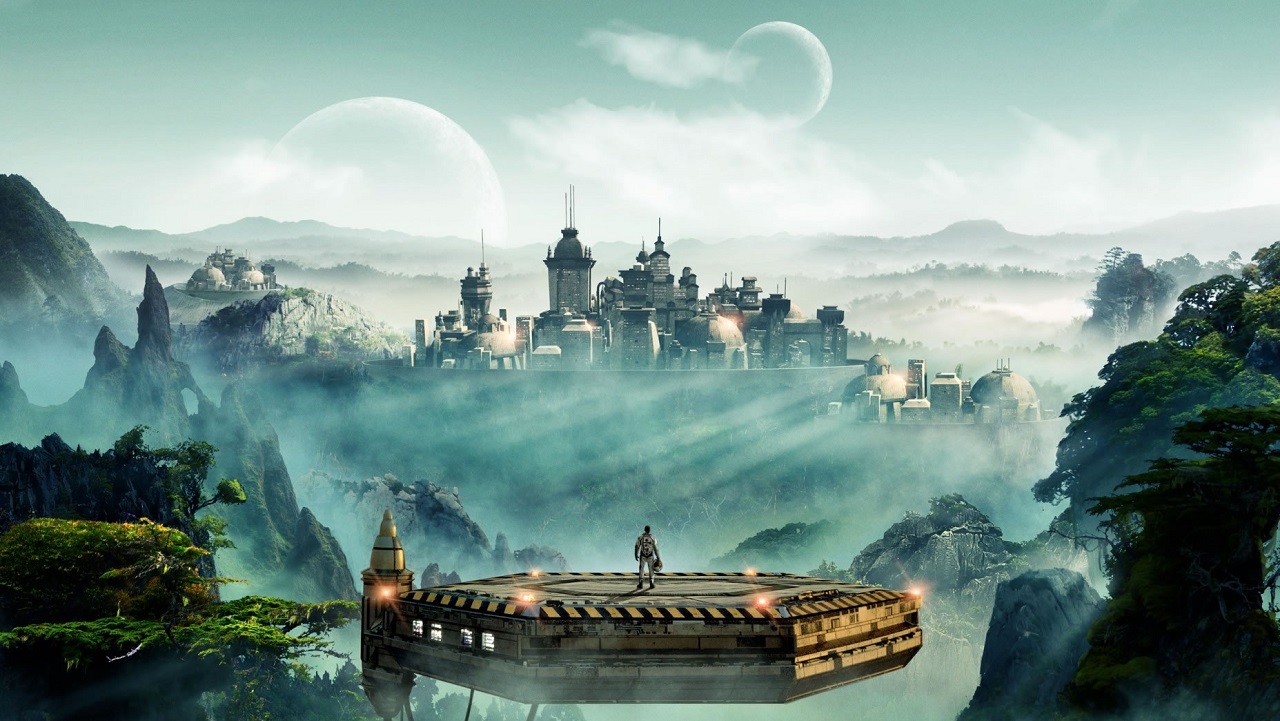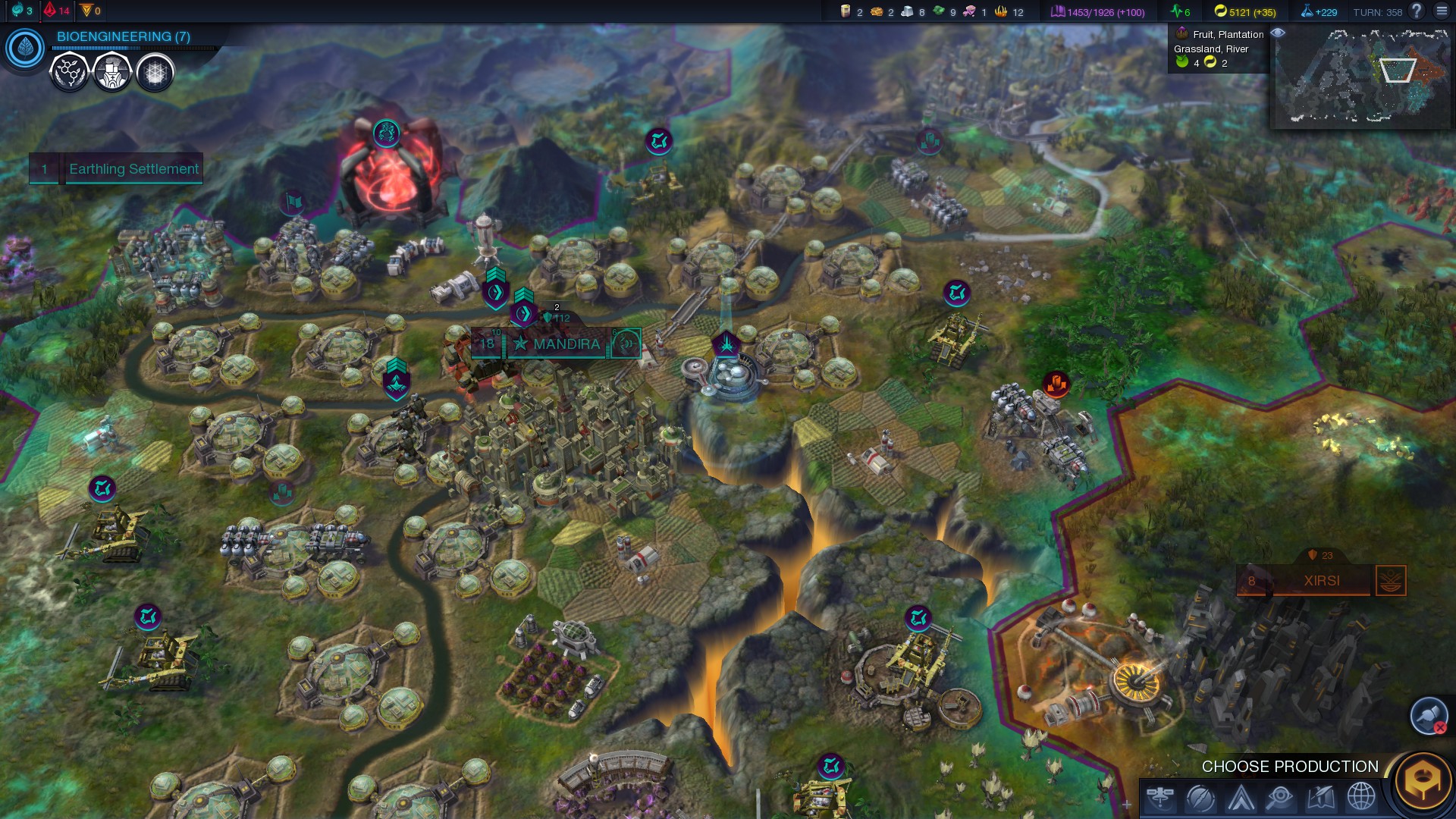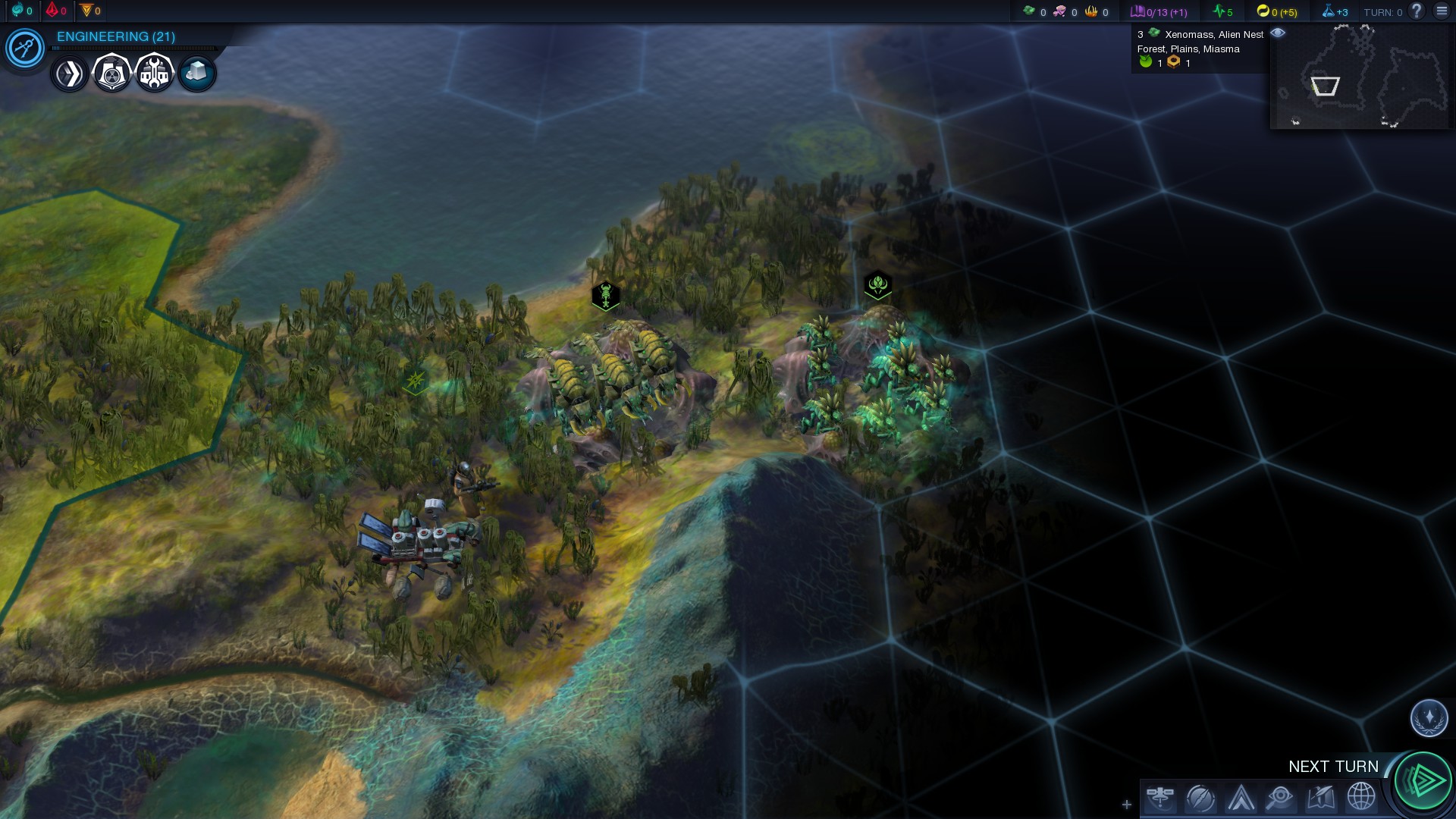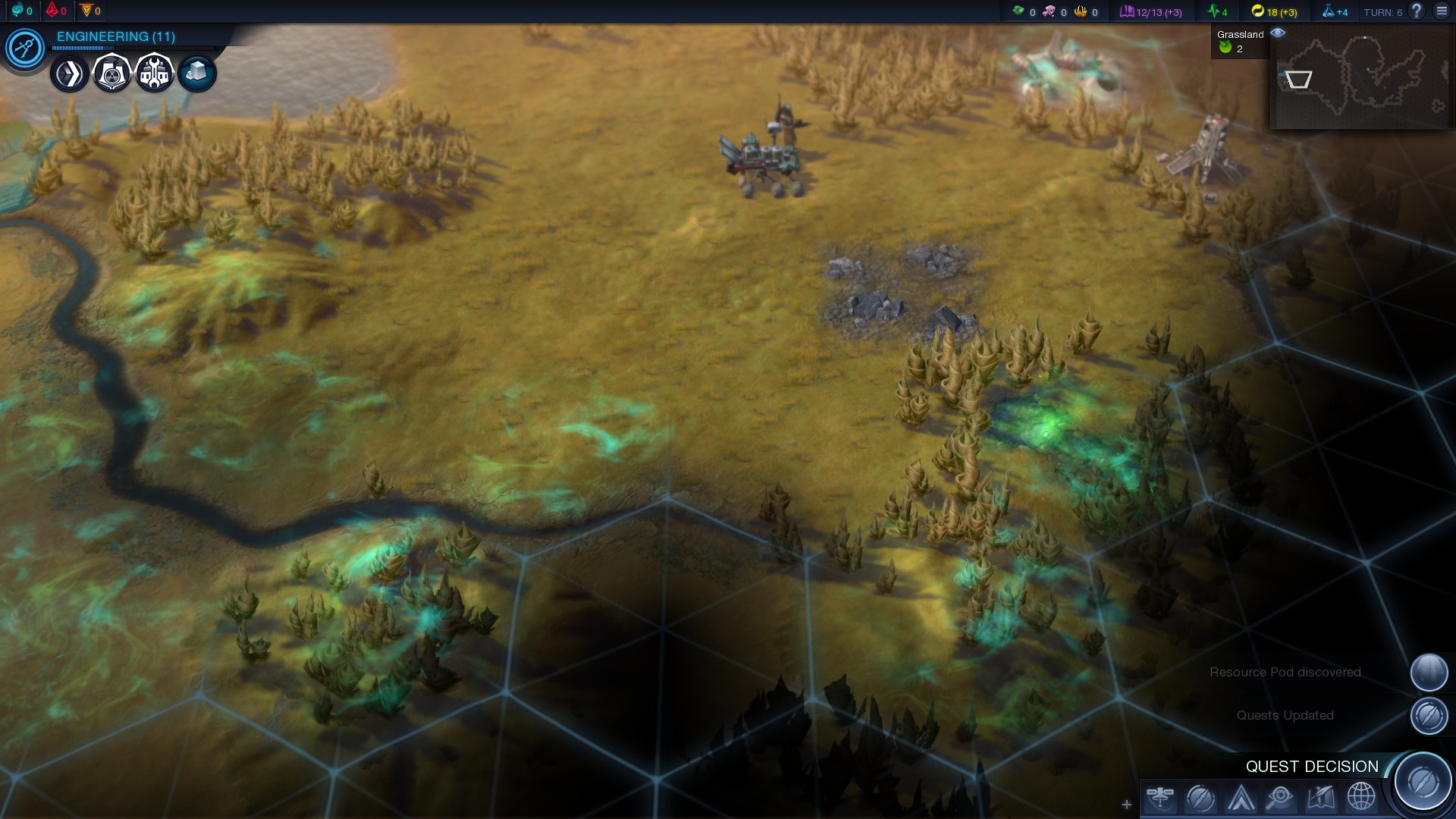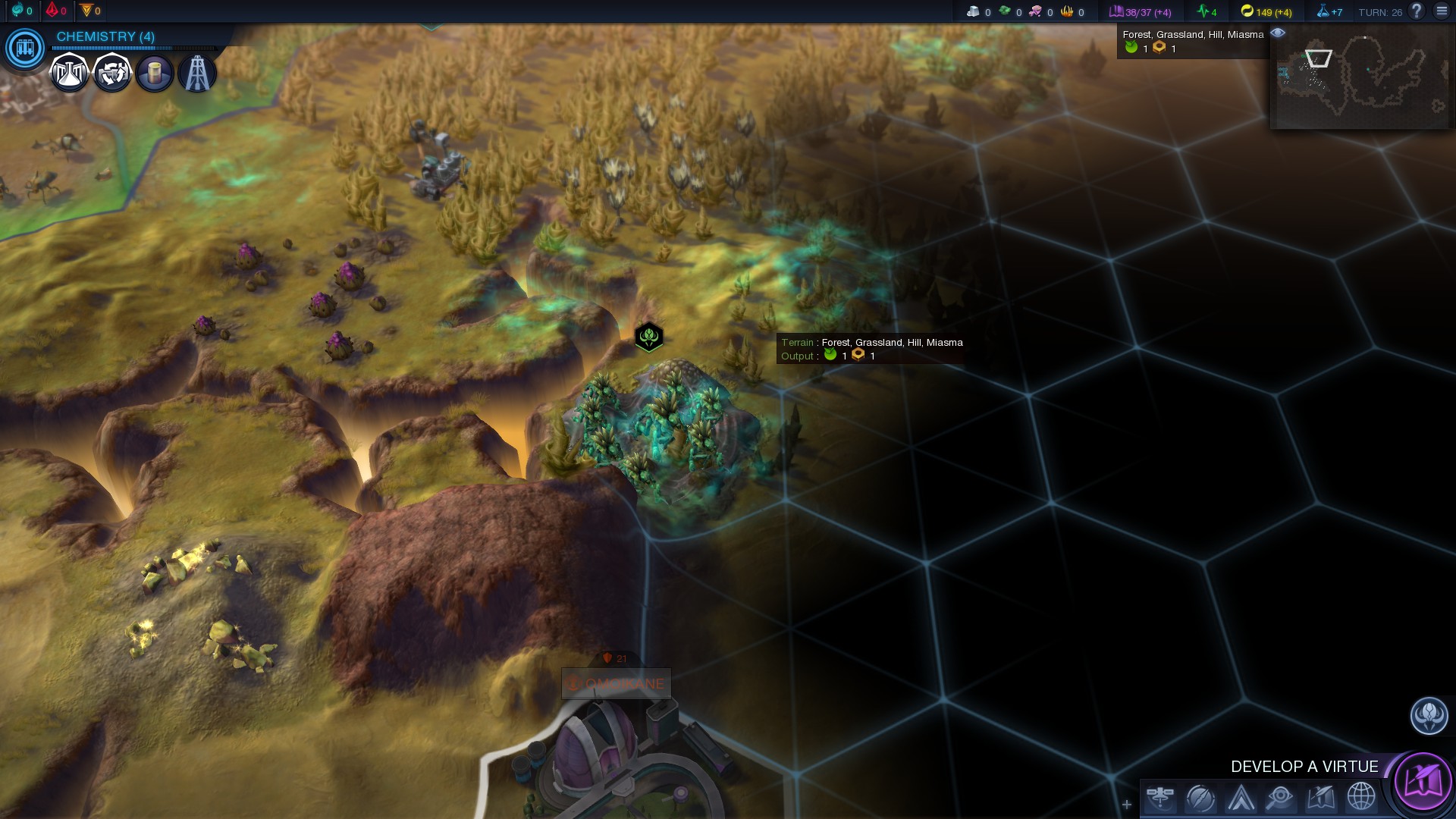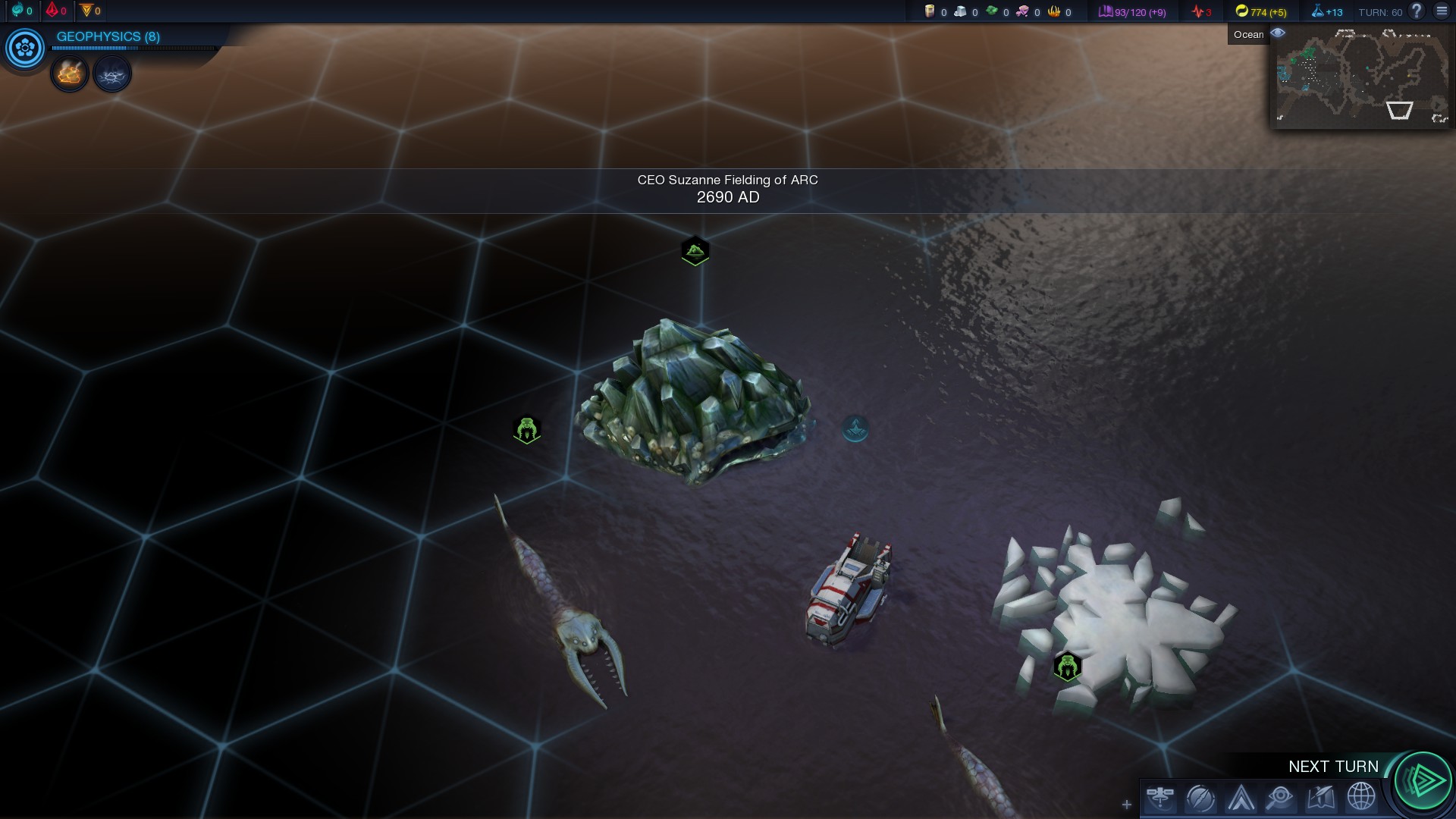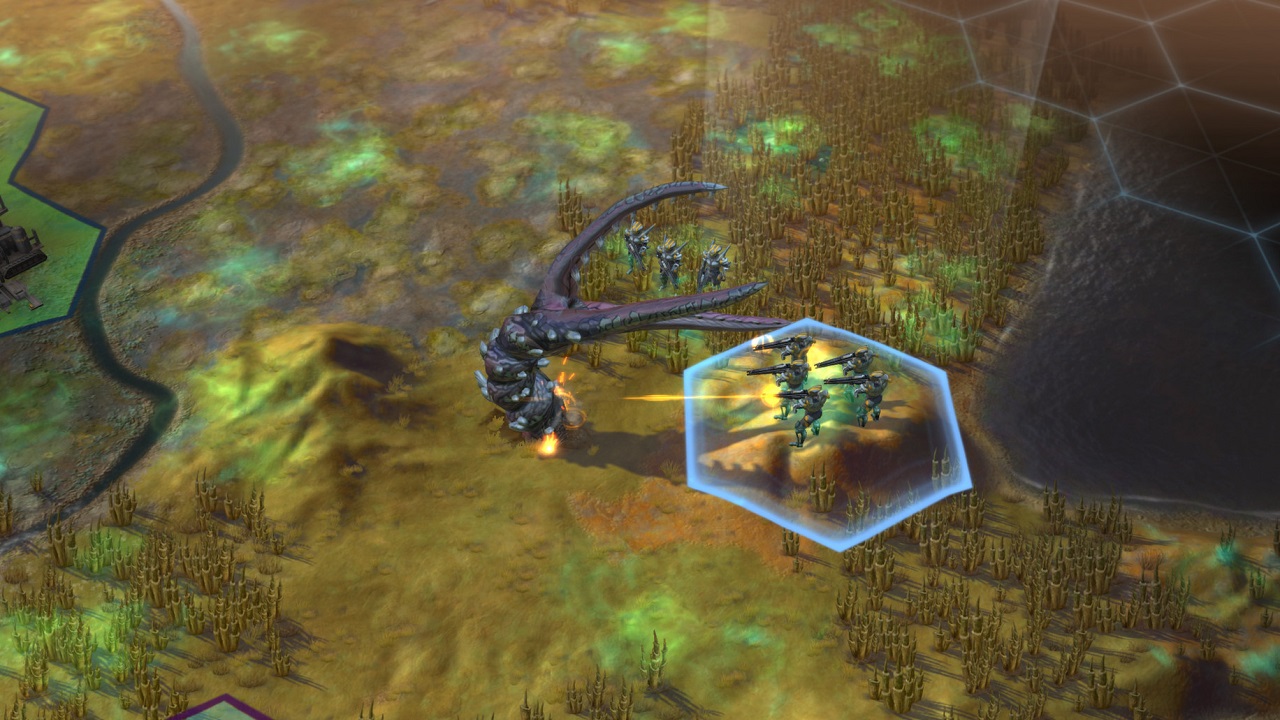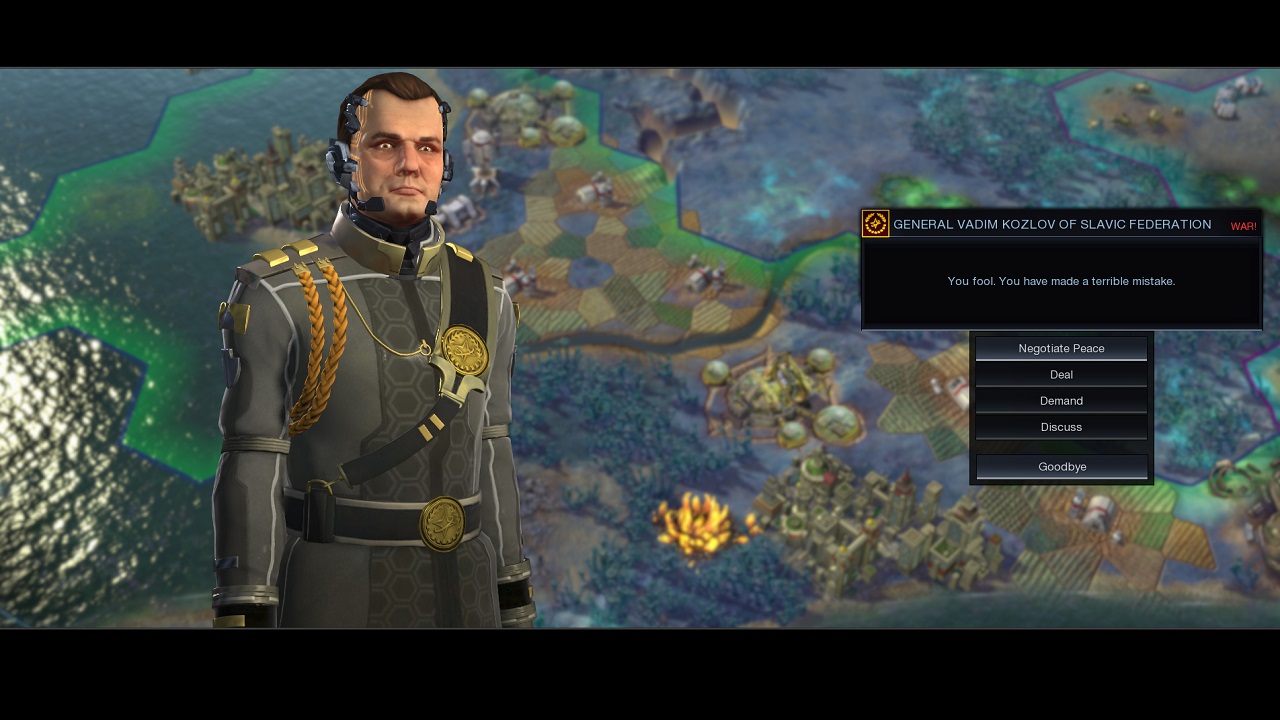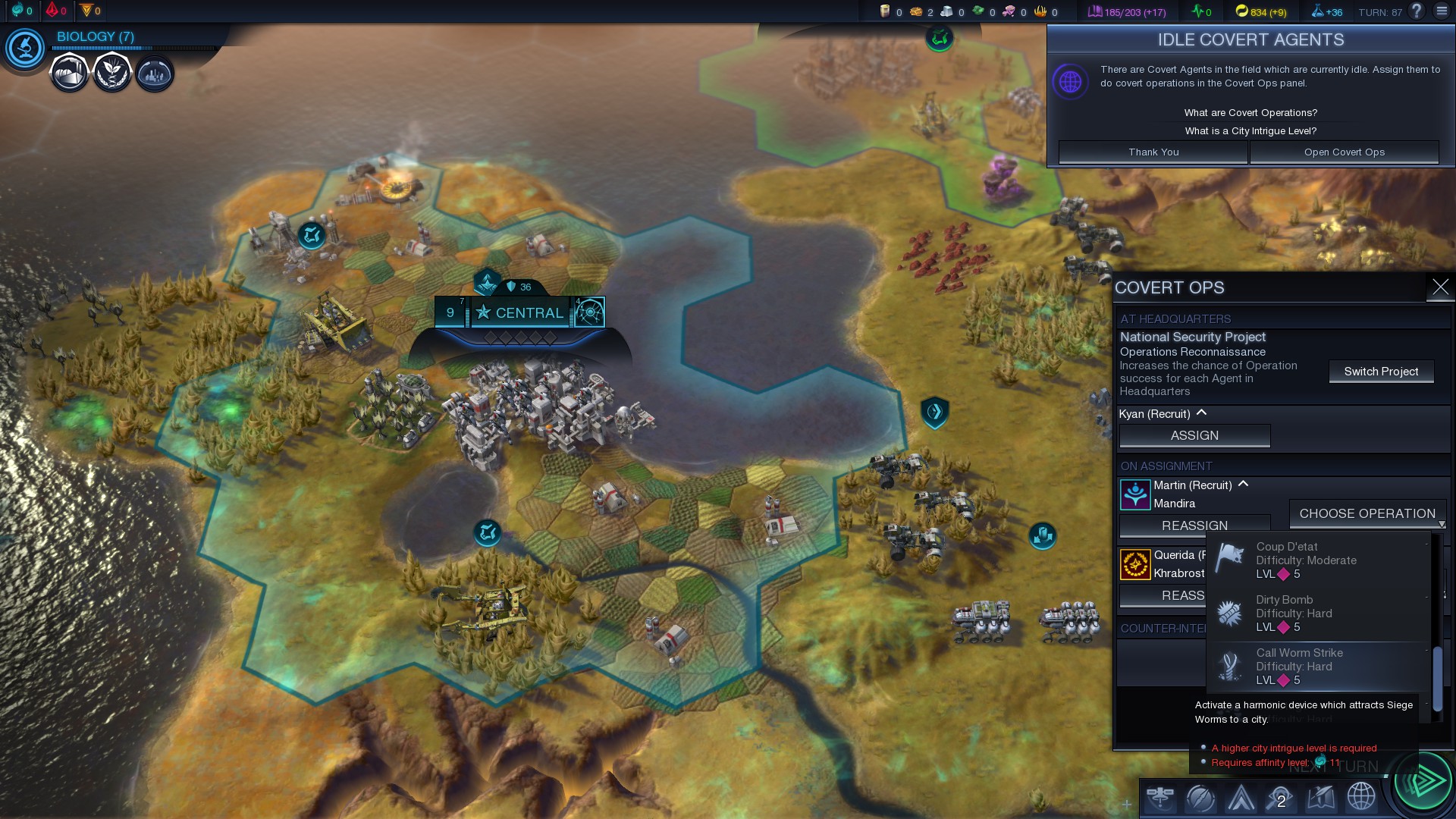GamesRadar+ Verdict
Pros
- +
Familiar Civ gameplay
- +
but now with aliens!
- +
Quests provide guidance and ample rewards
- +
Affinities change how you approach the new world's alien resources
Cons
- -
Incredibly complex for Civ newbies
- -
Late game is less interesting than opening turns
- -
Feels a little too similar to previous Civilization games
Why you can trust GamesRadar+
I've always wondered what happened to the intrepid citizens who left for Alpha Centauri at the end of a gripping game of Civilization. What was in store for those who escaped the confines of Earth, who reached toward the inky blackness of space? What would those brave men and women find when they first set foot on that alien planet, a planet on which no human has trod before? According to Civilization: Beyond Earth, that world is both wildly different and eerily similar to the one they left behind.
While the surface of this new world is foreign, filled with toxic clouds of miasma and harsh, undiscovered forms of life, much of it will feel instantly familiar to anyone who's played a Civilization game before. It'll feel even more familiar if that game is Civilization 5, because the core framework of Beyond Earth is largely the same. First, you choose from a handful of coalitions, backgrounds, and cargo, and set up shop on some unsuspecting planet out in the middle of nowhere. Then, you build up your society, taking advantage of the extraterrestrial elements, while trading with (or blowing up) your fellow humans.
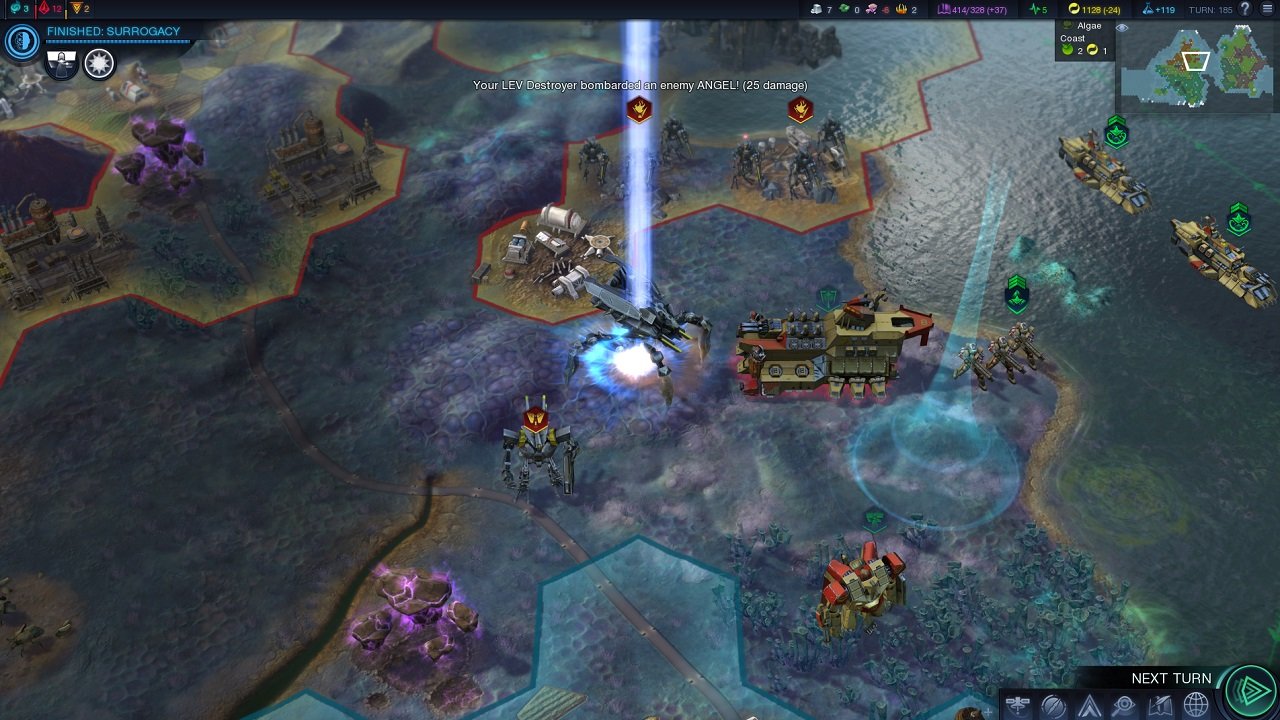
Despite being set on a distant planet, it's surprising how little has changed after the long voyage. You're still setting up trade routes and researching new technologies while your diplomatic rivals are backstabbing you whenever they can. Instead of dealing with roving bands of barbarians, you now have ‘aliens’ to deal with (but, let's be real here; you're the true alien in this equation). The Civ formula is certainly as addictive as ever, as you watch your little space expedition take small steps for mankind with every tick of the clock. I found myself staying up into the wee hours of the morning just to complete one more turn (which always turns into another 50 or so). But there are moments where Beyond Earth feels more like a total conversion mod than a brand new game. Sure, you might be researching cybernetics instead of masonry, but in the end, it's all the same jumble of stats.
This similarity stretches from the general mechanics to the overall flow of a typical game of Civilization; namely, that the late half game is far less interesting than the first. When you first disembark onto this unfamiliar land, exploration and discovery are key. Choices you make here regarding your approach to research and development will determine how you tackle its endgame. Hidden resources and ruins of an ancient alien race dot the landscape, and hunting them down and reaping their rewards means putting your precious units at risk. There's a sense of wonder and infinite possibilities in the first hundred turns or so, but once the world and the societies that inhabit it have reached an equilibrium, Beyond Earth becomes more about digging in your heels and researching the futuretech you need to win. At least you're not rebuilding the pyramids for the umpteenth time.
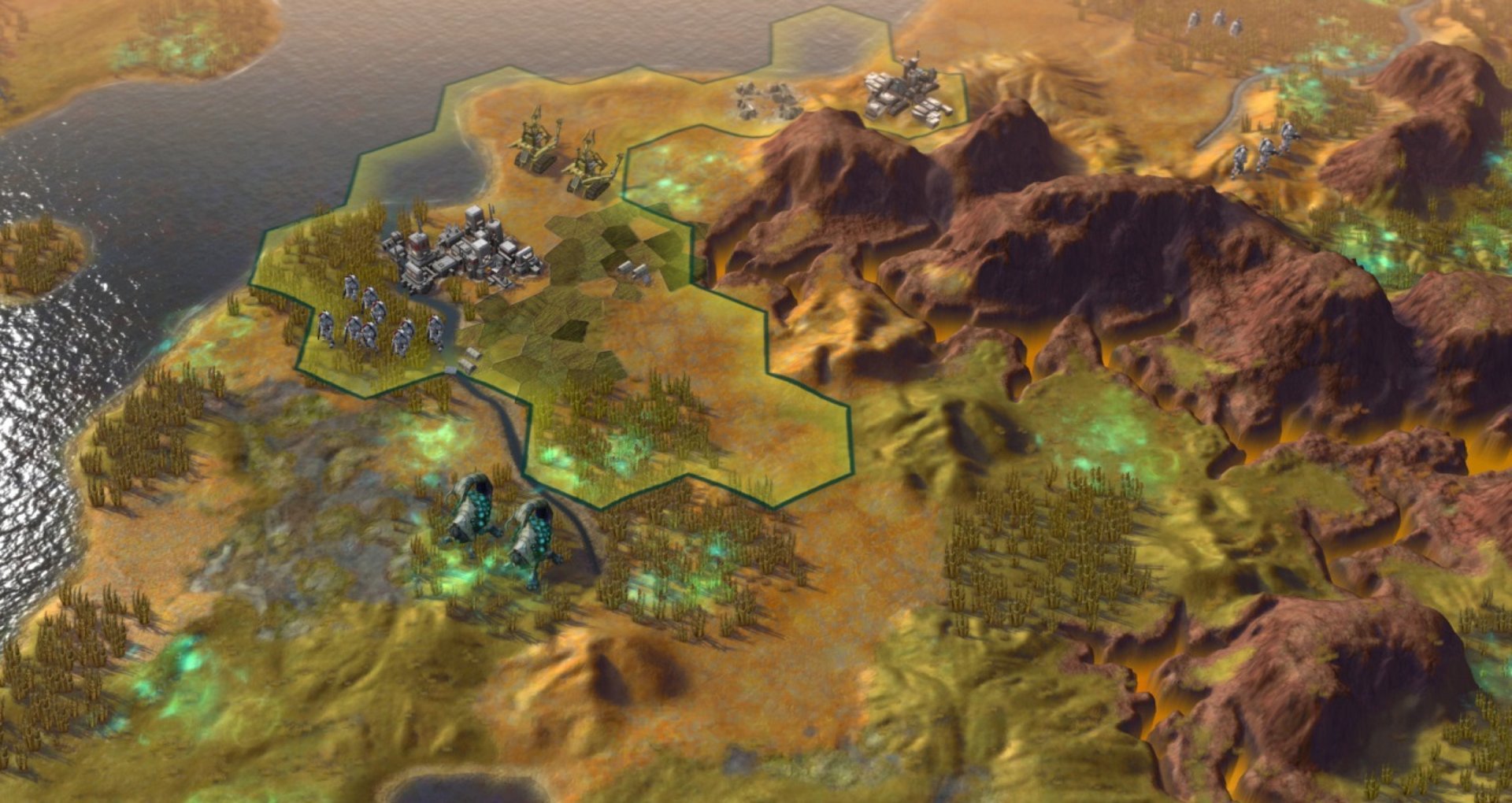
Even with these similarities, it's not all the same, and the changes Firaxis has brought are definitely welcome. The quest system is a great way to get acclimated to the new-ish set of rules, and the different troop and research options. Every time you build a new structure, you're given a choice. Do you take this new plant you've discovered and turn it into building material or a nutritious (yet disgusting) snack? What you pick determines the resource bonus that unit will produce. There are also larger quest lines that you can follow to help guide your society down a specific path. These usually involve researching some new tech then doing something specific with it. Finishing these quests not only get you additional resources, but also help course correct any resource deficiencies in your society. While the quests themselves amount to little more than flavor text, they help provide a bit of structure to your play, and the bonuses are definitely worth pursuing.
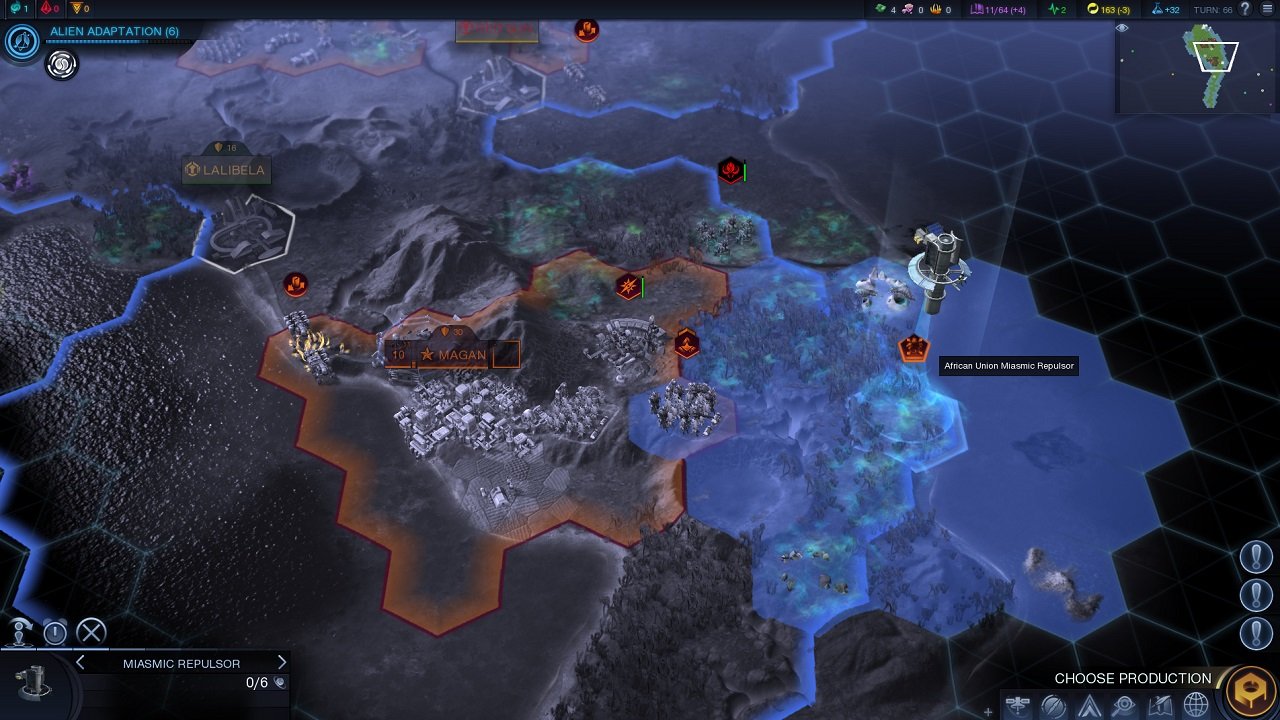
In addition to growing your city with buildings and military units, Beyond Earth lets you construct satellites and shoot them into the stratosphere. These satellites provide an area of coverage, providing bonuses to all of the tiles it reaches. They're not necessary, but building them can certainly give you an edge over your competition. Be careful, though; powerful ground units and crafty spies can shoot them out of the sky if you're not paying attention.
On top of the new, non-linear technology web and this quest system, you've also got to worry about your affinity level. Your affinity determines how you interact with the alien planet and its resources, as well as how you approach the endgame, adding yet another layer of choice onto a game that wasn't exactly lacking in it. While the affinities certainly change your approach to the game (Purity is all about destroying aliens, while Harmony allows you to harness their power for your own), they don't limit your strategies in anyway. You can be a peace-loving race of cybernetic beings, or unleash a horde of sandworms on your unsuspecting foes. The affinity system can drastically change how you interact with this forbidden planet, and seeing your civilization slowly evolve from futuristic buildings to an alien/human hybrid society is really cool.
And the aliens. Oh, the aliens. They may seem like horrific hell beasts, but you soon discover that they were kinda here first, and you're stepping all over their homes with your evil humanity. Sometimes they'll leave you alone, letting you go about your business, but if they feel threatened, they'll start attacking without warning. And unlike the barbarians from vanilla Civilization, these buggers keep coming back, regardless of how many you eviscerate. At first, I thought they were a nuisance, always getting in the way. But really, they're a tool, just like everything else in the game. If you want to fight them off, you can use them to give your soldiers experience. Or, you can befriend them, and use them to your advantage. While many other aspects of Beyond Earth might be a bit too similar to older games in the series, the native fauna really do change how you explore, build, and grow as a society.
Everything is out to kill you
If you think life on Earth is hard, wait till you travel light years away from your home planet. When you set foot onto humanity's new residence, you'll find a plethora of things out to kill you, some of them alien, and some of them a bit too familiar. You weren't expecting a walk in the park, were you?
Because Beyond Earth is so similar to Civilization 5, veterans will find it easy to hop in with only the briefest of advice. If you're new, you might find yourself in way over your head. Correction: you will find yourself in over your head. There are so many layers of systems, resources, and units to build--on top of the already convoluted mound of mechanics from Civilization 5--that, unless you've played other Civilization games before, you'll likely find yourself completely lost. The game does its best job of bringing new players up to speed, both with help pop-ups and a robust encyclopedia of rules and terminology, but it'll take you at least a game or two to figure out how all of its copious moving pieces fit together.
Life on a distant planet may be similar to how we ran things back here at home, but there are enough surprises, dangers, and twists in store to make Civilization: Beyond Earth worth exploring. And when the core experience is already so compelling, a change of scenery might be all you need to fall back in love. Oh, and don't fear the sandworms. Fear is the mind-killer.
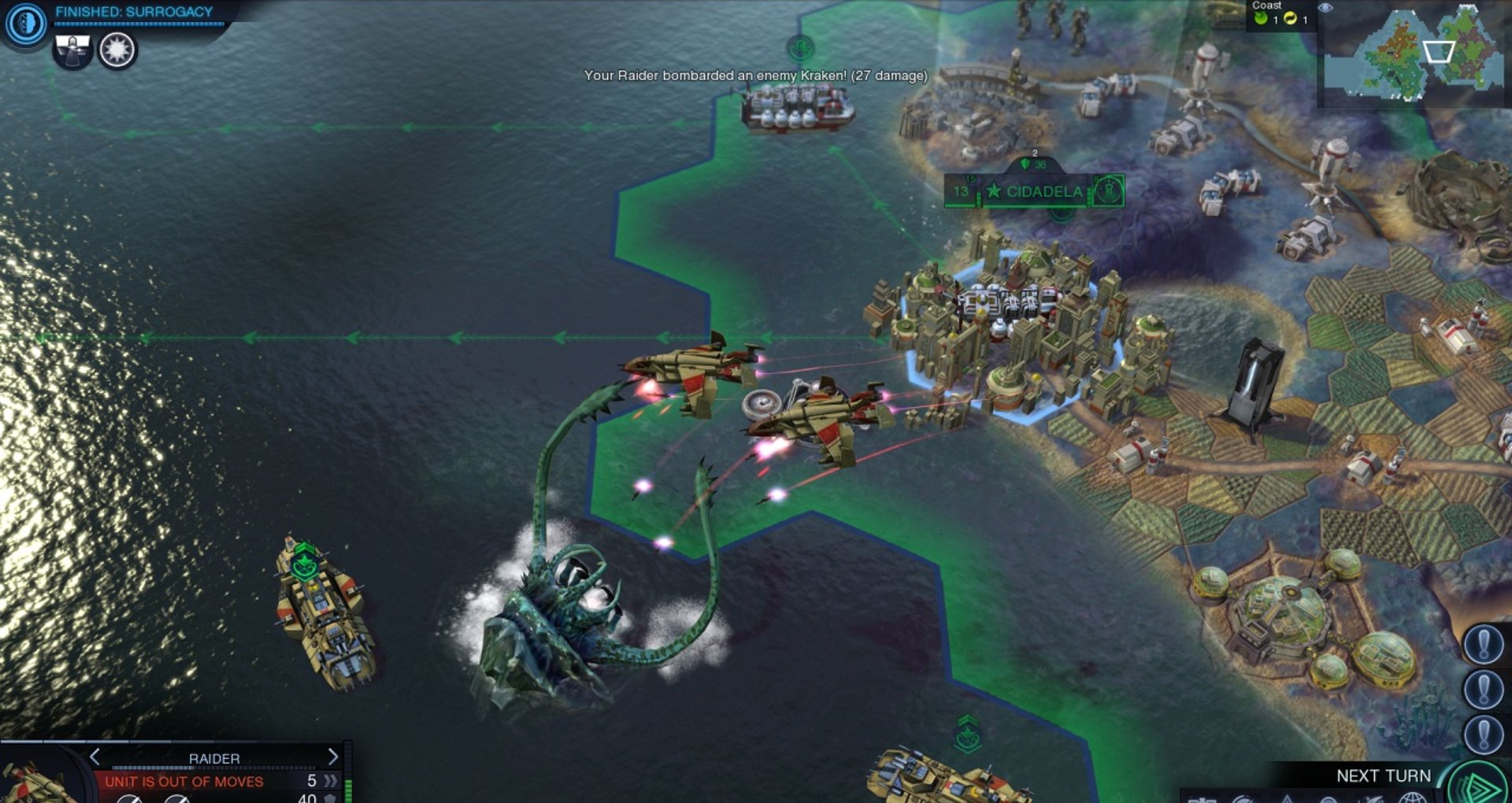
Civilization: Beyond Earth may seem a bit too familiar for a game supposedly set on a distant planet, but the roving packs of aliens and the new quest system make it an expedition worth embarking on.
This game was reviewed on PC.
More info
| Genre | Simulation |
| Description | Earth is dying, we need a new place to populate. |
| Platform | "PC" |
| US censor rating | "Everyone 10+" |
| UK censor rating | "" |
| Release date | 1 January 1970 (US), 1 January 1970 (UK) |
